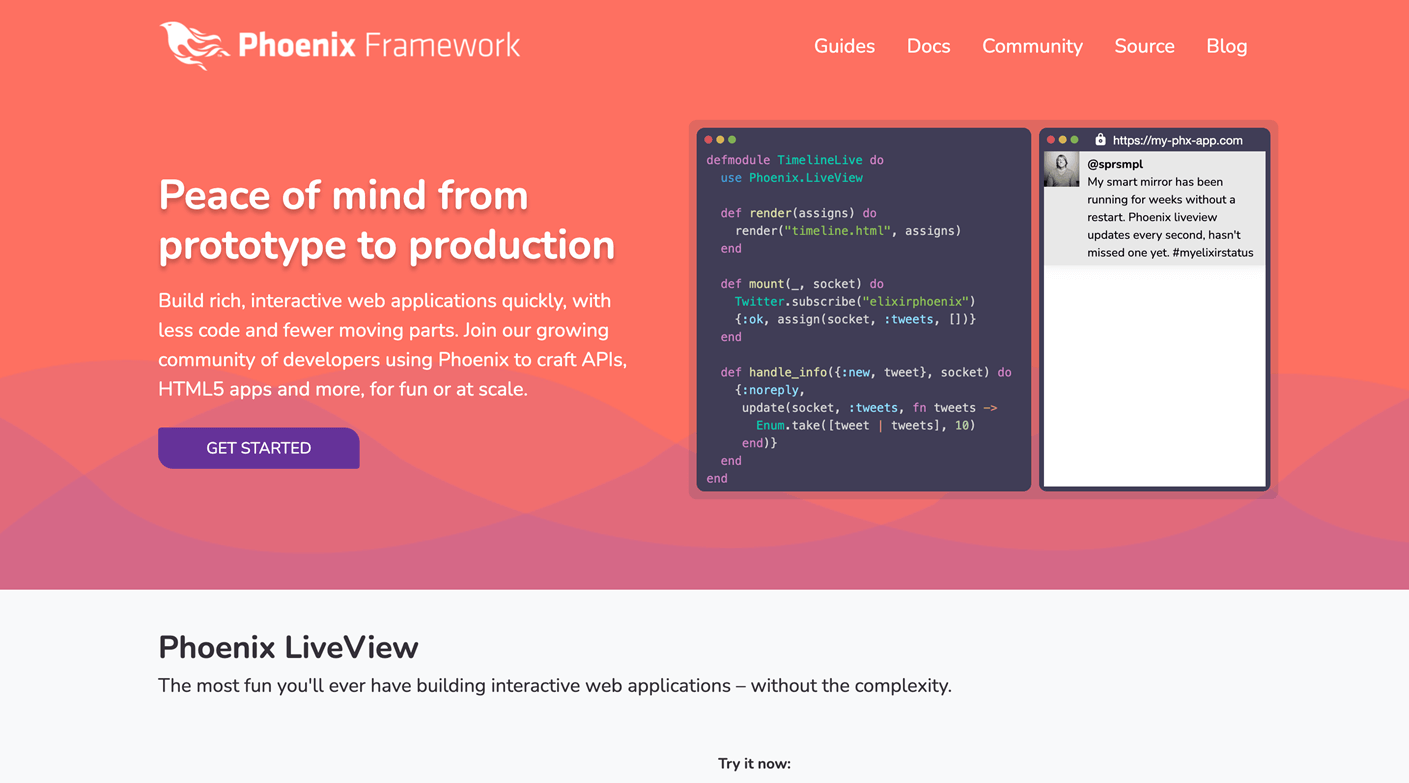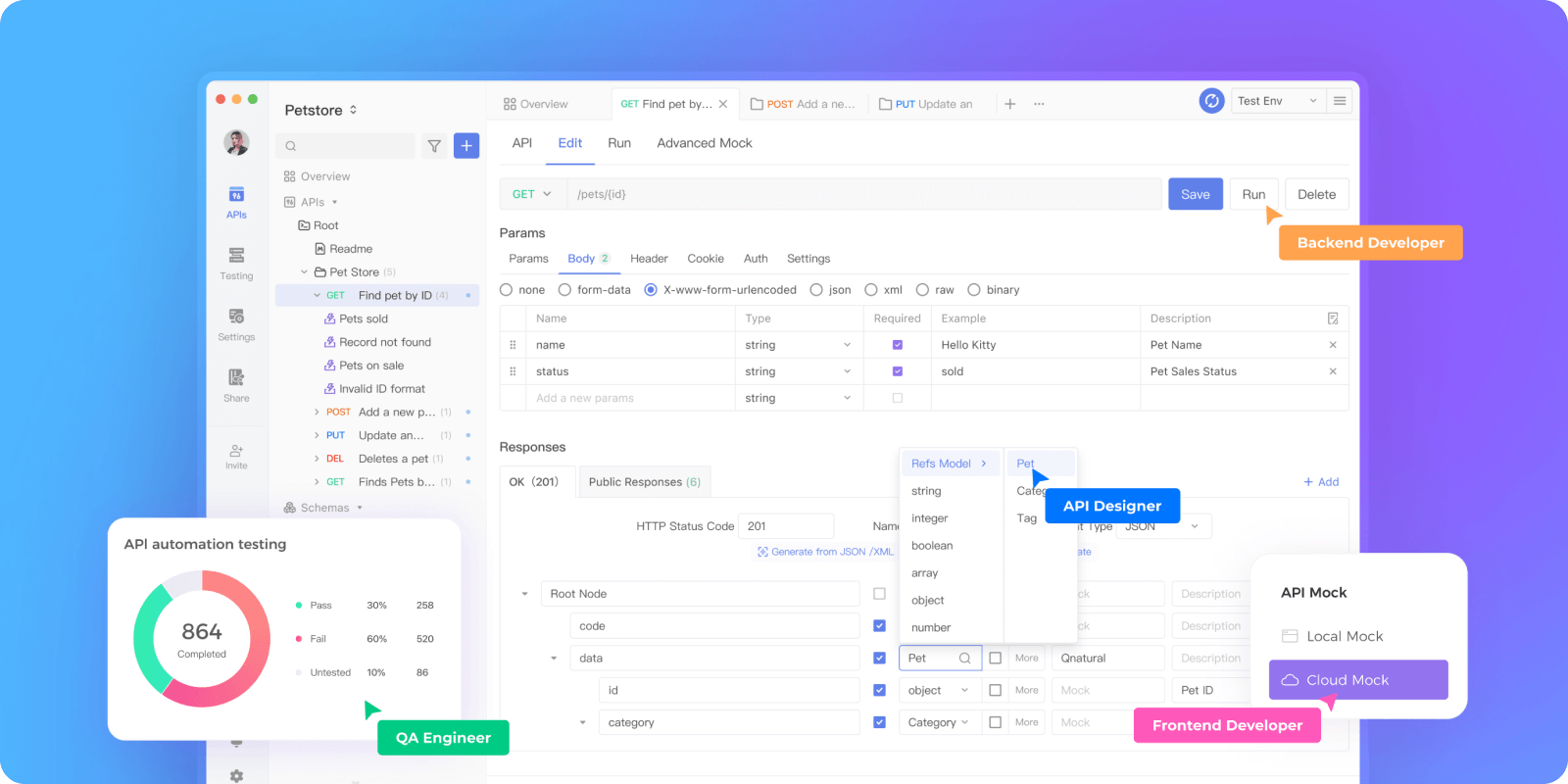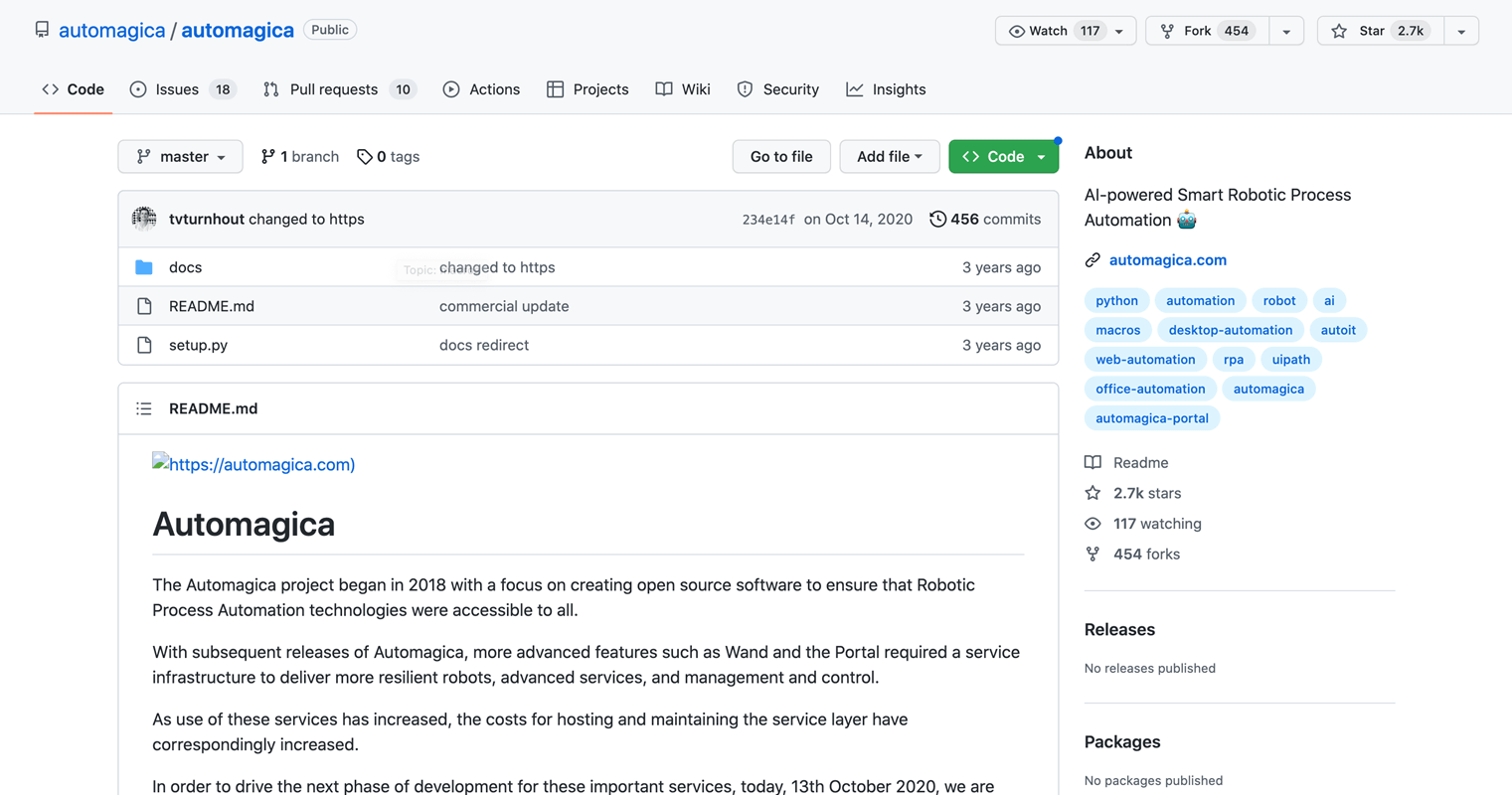3 Best Automated Testing Platforms of 2025
This article will introduce the top 3 automated testing platforms, and talk about their features and advantage.
In today's quality-focused era of the Internet, automated testing is extremely important, involving API, front-end, back-end, operations, and more. Today, we recommend several user-friendly automated testing tools and introduce their main features and advantages. We hope to help you quickly find the right automated testing platform. Let's take a look.
Top 3 Automated Testing Platforms
Phoenix Framework
Phoenix Framework is an open-source web development framework for building modern web applications that support large-scale applications. It uses Elixir programming language, a new functional programming language based on the Erlang virtual machine.

Key Features of Phoenix Framework:
- High performance and scalability: Phoenix Framework uses the powerful features of Elixir and Erlang to provide high performance and scalability, making it particularly suitable for handling high traffic and large-scale applications.
- Real-time functionality: Phoenix Framework supports real-time web application development, including WebSockets, long polling, and more.
- Integrated framework: Phoenix includes many functional components such as request routers, database processes, annotated HTML views, and WebSocket protocols for server-client communication, which reduces the complexity of application development.
- Easy to extend: Phoenix Framework allows developers to add custom features and middleware to provide flexible development solutions.
- Security: Phoenix Framework has high requirements for web security and includes built-in security measures to help developers avoid common web security vulnerabilities and attacks.
Phoenix Framework provides a powerful, modern web development framework for building large-scale applications. Its high performance and scalability make it an excellent choice, especially in scenarios that require handling high traffic and real-time requirements. The real-time functionality, ease of extension, built-in security, and other features of Phoenix Framework also make it a favorite web development framework for many developers.
Apidog
Apidog is an integrated API collaboration platform that enables API documentation, API debugging, API mocking, and API automated testing. It is a more advanced API design/development/testing tool. Apidog provides a comprehensive API management solution. With Apidog, you can design, debug, test, and collaborate on your APIs on a unified platform, eliminating the problem of switching between different tools and data inconsistencies. It simplifies your API workflow and ensures efficient collaboration between front-end, back-end, and testing teams.
- Document editor: Apidog provides an easy-to-use document editor for writing and editing API documentation, making it easy to read and understand. You can use Markdown syntax to write documents without worrying about formatting or layout.
- Automated testing tool: As Apidog can integrate with many other development tools, it provides an automated testing tool that can help you ensure the correctness of your APIs. You can easily create and run test cases, and get real-time feedback on your APIs, supporting test cases, test suites, and conditional judgment test cases.
- Team collaboration: As API documentation is created through a collaboration among multiple developers and teams, Apidog provides powerful team collaboration features. You can assign members of each development team to specific API documentation projects and share information and feedback with them.
- Custom domain: Apidog allows you to associate a custom domain with your API documentation. This means you can use your own brand name to access API documentation, which can improve your brand awareness and make your API documentation look more professional.
- Performance analysis: Apidog provides performance analysis tools based on real-time data to help you monitor API performance. You can use Apidog to check the status of your APIs and track their response time, error rate, and other performance indicators.

As an API design tool, Apidog has the following advantages:
- Ease of use: Apidog provides an intuitive and navigable user interface that allows API designers to easily create, specify, maintain, and share API documentation.
- Efficiency: Apidog's workflow can greatly improve the productivity of API designers. It reduces manual operations and the possibility of errors by using templates and automation features.
- Scalability: By using Apidog, you can easily create APIs that support multiple formats, including JSON, YAML, and Markdown.
- Collaboration: Apidog supports team collaboration, allowing you to invite colleagues or clients to work together in the documentation and maintain consistency throughout the API development process.
- Security: Apidog provides a series of security mechanisms, including authentication, access control, and encryption, to protect your data and API designs.
Automagica
Automagica provides a simple and powerful solution for automating the management and handling of Windows desktop applications. It's API and web interface make it easy to integrate into other workflows, while support for custom scripts allows developers to have finer control over their automation tasks.

Key Features of Automagica:
- Image and text recognition: Automagica allows for the recognition and capture of images and text within desktop applications.
- Automatic recording and playback: Users can record and replay their actions within Windows desktop applications.
- Application integration: Automagica can integrate with many applications, including Microsoft Office, PDF documents, and more.
- Custom scripts: Automagica also allows users to write custom scripts to manage their automation tasks. These scripts can be written in Python.
- Web interface: Automagica provides an easy-to-use web interface that allows users to create and manage robot tasks.
Conclusion
The above are the 3 automation test platforms highlighted in this article, each with its own advantages. If you are still not quite sure which one is suitable for you, it is highly recommended to try Apidog, which gives you the best automation test.



